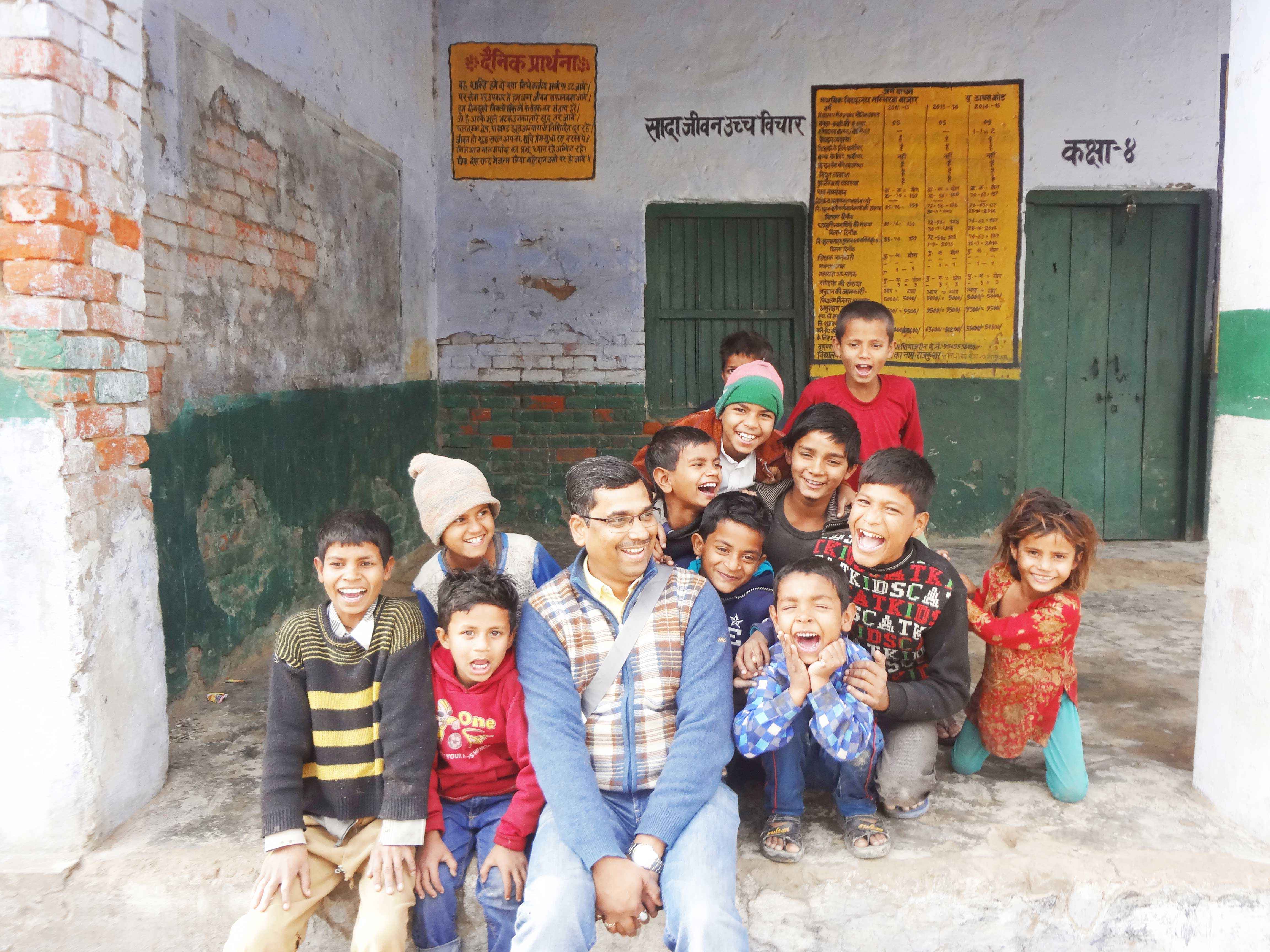- Home
- Archive -Jan 2018
- Sweeping up wit. . .

Sweeping up with songs
- In :
- Personal Growth
Music has immense power to bring about change. With this knowledge, Paresh Kumar has set out to bring behavioural changes in a society that suffers from high mortality rate due to rampant lack of hygiene.
According to a WHO report, India has the highest number of “Under five” mortality in the world with an estimated 1.2 million deaths in 2015, which is 20 per cent of the 5.9 million global deaths. This is primarily due to lack of hygiene.
Talking about how he ventured into this sphere, Paresh, Founder of DevInsights, a Delhi based research, monitoring, and evaluation, private company, said, “In 2015, we conducted an in-depth research into the existing communication models being used in the country and realised that these traditional methods of mass communication weren’t sufficient to bring the desired change.” They started brainstorming on innovative models that could hit the right chords with the rural Indian and urban slum dwelling population, and came up with the concept of Music for Development (M4D). It is a unique combination of science and art; a marriage of behavioural science and the art of music to produce social change and development.
To gauge the power of music, we simply have to look at Mozart’s music which was used to direct appropriate behaviour among young offenders. Scholars have, time and again, emphasised upon the connection between music and neuroscience, and how the former can be used to bring about a paradigm change in human behaviour for positive development. M4D aims for a similarly efficient and long lasting impact on society's psych, in support of Swachch Bharat Abhiyan and WASH project.
The uniqueness of the concept of M4D is that it believes in making school children the agents of change. As of now, M4D intervention has been implemented in three government schools of Chitaura block in Bahraich district of Uttar Pradesh. Music is composed, keeping in mind the popular culture of a particular region, so that it easily gets registered in the minds of children. Each song is prepared after thoroughly researching the target area to understand the current knowledge, attitude, and practices of the residents. These include their likes, dislikes, lifestyles, interests, and choices. The songs are then sung by children in schools, accompanied by a few adults, to promote and emphasise key WASH (water, sanitation, and hygiene) behaviours.
Pleased to see the fruits of his labour, Paresh says, “After having sung these songs in their school, they now own them, and dance to their tunes. Even the teachers are very happy and supportive of this idea.”
Rita Sharma, one of the teachers from Damodarjot Prathmik Vidyalaya, shares an incident: “Once, a parent demanded to know what we taught in the school because their children had started demanding the construction of toilets in their homes. I asked him, ‘If the child is requesting why don’t you get it constructed?’ This is a small victory,” she says, with a smile on her face.
To read more such articles on personal growth, inspirations and positivity, subscribe to our digital magazine at subscribe here
Life Positive follows a stringent review publishing mechanism. Every review received undergoes -
- 1. A mobile number and email ID verification check
- 2. Analysis by our seeker happiness team to double check for authenticity
- 3. Cross-checking, if required, by speaking to the seeker posting the review
Only after we're satisfied about the authenticity of a review is it allowed to go live on our website
Our award winning customer care team is available from 9 a.m to 9 p.m everyday
The Life Positive seal of trust implies:-
-
Standards guarantee:
All our healers and therapists undergo training and/or certification from authorized bodies before becoming professionals. They have a minimum professional experience of one year
-
Genuineness guarantee:
All our healers and therapists are genuinely passionate about doing service. They do their very best to help seekers (patients) live better lives.
-
Payment security:
All payments made to our healers are secure up to the point wherein if any session is paid for, it will be honoured dutifully and delivered promptly
-
Anonymity guarantee:
Every seekers (patients) details will always remain 100% confidential and will never be disclosed
